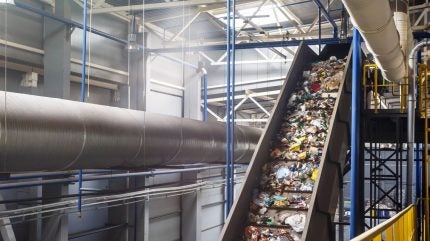
The Association of Plastic Recyclers (APR) and ECOCE, a Mexican environmental organisation, have announced a partnership to enhance plastic packaging recyclability.
This collaboration will focus on sharing information, building stakeholder relationships, and developing joint projects in the North American region.

Discover B2B Marketing That Performs
Combine business intelligence and editorial excellence to reach engaged professionals across 36 leading media platforms.
APR and ECOCE will work together to create a Spanish version of the APR Design Guide for Plastics Recyclability. The guide will be adapted to reflect the unique recycling infrastructure in Mexico.
Additionally, the APR Design Training Program will be expanded to include Spanish-language resources, promoting the APR Design Recognition Program in Mexico.
ECOCE general director Jorge Terrazas Ornelas said: “The signing of this MOU [memorandum of understanding] reaffirms our commitment to advancing a more sustainable model of production and consumption.
“Through our collaboration with APR, we seek to accelerate the adoption of international standards that improve packaging recyclability in Mexico.”

US Tariffs are shifting - will you react or anticipate?
Don’t let policy changes catch you off guard. Stay proactive with real-time data and expert analysis.
By GlobalDataThis partnership is part of a broader initiative involving APR, ECOCE, RecyClass, and other stakeholders to standardise recyclability guidelines and protocols globally.
The aim is to provide clear, consistent direction for the entire value chain while acknowledging regional recycling system variations.
The APR ECOCE recycling partnership is a strategic move to address the challenges of plastic waste and promote sustainability across borders.
By aligning design guidelines and recognising regional differences, these organisations hope to make a significant impact on the recyclability of plastic packaging.
APR president and CEO Steve Alexander said: “APR is pleased to formalise our relationship with ECOCE as we work to align plastic design for recyclability across the globe.
“Both organisations are committed to creating a circular economy and improving recycling for plastics.”





